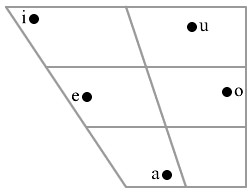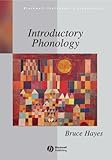Common English mistakes for Japanese people
‘r’ and ‘l’ + vowels
As you know, Japanese people have very hard time to pronounce /r/ and /l/ sounds in English. It is because Japanese doesn’t have phoneme (“a basic sound unit of a language”) to describe the sound /r/(Alveolar, Approximant ) and /l/(Alveolar, Lateral). However, Japanese language has similar sound called /r/ (postalveolar, flap) which sound more likely flap ‘d’ allophone [ɾ] sound for English speakers.
For example:
English word “buddy” /bʌdɪ/ sound “Bali” /ˈbɑlɪ/ is very similar for Japanese people. The word “Bali” would be /bari/ in Japanese, but pronounced very similar to English flap “d” [ɾ].
Imagine a situation when you are away from your family for long time for work on the ship with Japanese people (it is hard to imagine), they are so dead tired everyday, and you keep hearing Japanese people are saying “Daddy”.
Well, as you know, they are not saying “Daddy”, but “Dari” which means “sluggish” all the time. Anyway, “Dari” is often used among young generations. I use the word too, but I am trying not to use much because the word is used very casually but often shows negative attitude to the others. Be careful.
Now, you know why Japanese people often make mistakes /r/ and /l/. But how can I explain this???
The Japanese word is saying “flush”. Well, this button is not for “flashing” This is flush the toilet button.
There are more common English mistakes for Japanese: vowels. Here is the vowel charts for Japanese and English.
Chart 1: Japanese vowels Chart 2: English vowels
Before describing the mistake, let me introduce a bit about Japanese phonological system. Japanese language is a mora centric language. The word is or character called “Hiragana” are consisted by 3 types of syllable structures, 1) vowel, 2) a Consonant and a Vowel and 3) /n/. All Japanese words are combination of these types. For example, きれい /kirei/ beautiful = 3 syllables, そら /sora/ sky = 2 syllables, and おんな /onna/ women = 3 syllables.
Japanese words are pronounced as described in phonemic form in “Romaji” as /kirei/. This causes the “flash” and “flush” problem. Since Japanese doesn’t have a vowel /æ/ as in “flash”/flˈæʃ/, the closest sound is /a/. Hence, they would spell it out as “flash” instead of “flush”. If a Japanese person who doesn’t know the word “flush”, he would pronounce “flush” /flush/.
Here is a very funny video clip of very famous Japanese comedy show:
A video clip on Dailymotion (Downtown Gaki no thukai)
Listen carefully what a guy on the video in the clip says. You will find how hard some English pronunciations are for Japanese people.
For more information on Phonology:







